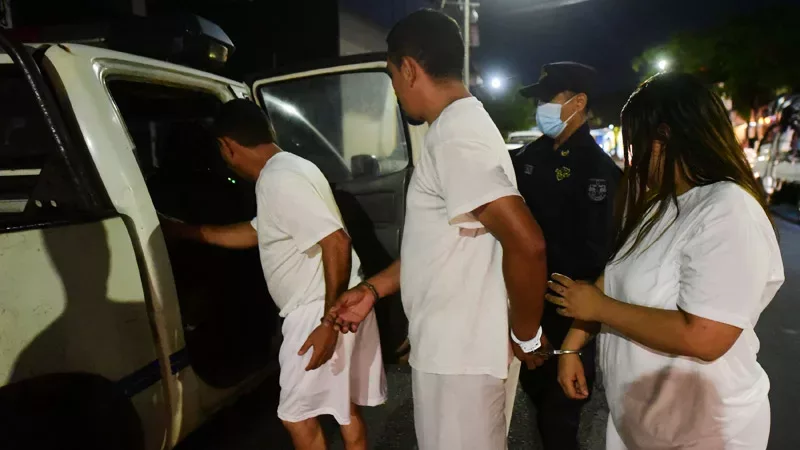Several lawyers who attended the second day of the Committee against Torture of the United Nations (UN) hearing with the State of El Salvador were outraged by the data provided by the government representatives.
According to the specialists, some of them members of human rights organizations such as Cristosal, what the State did to the United Nations was to “deliberately lie.”
The group of officials had to respond to a battery of questions that the members of the Committee asked them since Thursday, November 17, about allegations of torture and other cruel treatment amid an emergency regime that suspends constitutional rights and has been in force for almost eight months.
The representatives of the National Civil Police, the Ministry of Security, Penal Centers, the Attorney General’s Office, the Prosecutor General’s Office, and the Supreme Court of Justice, among other entities, rejected that human rights are being violated in El Salvador, that there is overcrowding in prisons, and that the deaths in prisons are not due to inhumane treatment or excessive use of public force.
Abogados dicen que Estado salvadoreño llegó a “mentir” a la ONU
Indignación ante los datos brindados por los representantes del gobierno, mostraron varios abogados que estuvieron pendientes del segundo día de la audiencia del Comité contra la Tortura de la Organización de las Naciones Unidas (ONU), con el Estado de El Salvador.
Según los especialistas, algunos de ellos miembros de organizaciones defensoras de derechos humanos como Cristosal, lo que el Estado llegó a hacer a las Naciones Unidas fue a “mentir deliberadamente”.
El grupo de funcionarios tuvieron que responder a una batería de preguntas que los miembros del Comité les formularon desde el jueves 17 de noviembre, por denuncias de tortura y otros tratos crueles e inhumanos en medio de un régimen de excepción que suspende derechos constitucionales y que lleva casi ocho meses de vigencia.
Los representantes de la Policía Nacional Civil, del Ministerio de Seguridad, de Centros Penales, de la Procuraduría General de la República, de la Fiscalía, de la Corte Suprema de Justicia, entre otras entidades, rechazaron que se estén violando derechos humanos en El Salvador, que exista hacinamiento en las cárceles, y que las muertes ocurridas en las prisiones no son a causa de tratos inhumanos o de uso excesivo de la fuerza pública.

